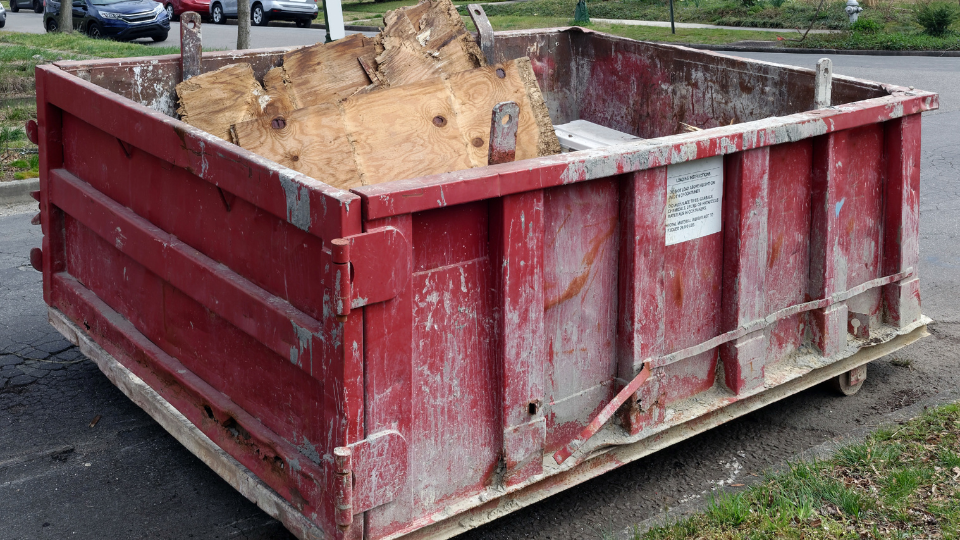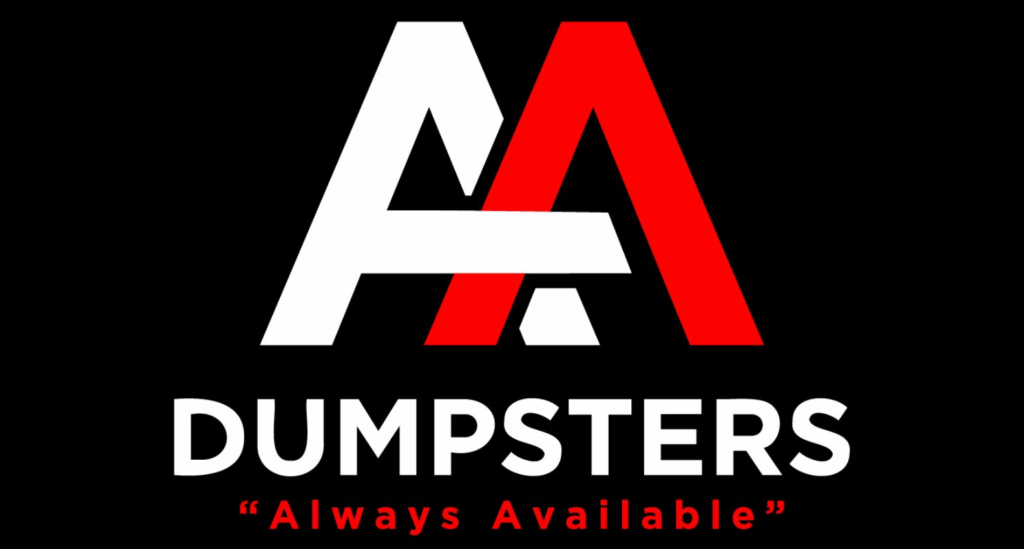When it comes to managing waste during a large cleanup or renovation, understanding the ins and outs of dumpster rental is essential. Dumpster rental insights can help guide you through the process, ensuring that you select the right size, type, and service for your needs. Whether you’re clearing out a home, remodeling a space, or managing a construction site, choosing the wrong dumpster can lead to added costs and delays. By familiarizing yourself with key dumpster rental insights, you’ll be able to avoid common pitfalls and streamline your waste removal process. This guide will cover everything from proper planning and waste disposal regulations to determining the appropriate dumpster size, making it easier to navigate your next project with confidence.

Understanding the Different Types of Dumpsters Available
When renting a dumpster, it’s crucial to know the different types available, as they serve specific purposes depending on the kind of project you’re undertaking. The most common options are roll-off dumpsters, which are typically used for large cleanup projects or construction sites, and front-load dumpsters, often found at businesses or multi-unit residences. Roll-off dumpsters are easy to load, with an open top and a wide range of sizes, making them ideal for home renovations, yard cleanups, or large-scale commercial work.
Front-load dumpsters, on the other hand, are usually more compact and designed for regular waste disposal at businesses. Understanding the variety of dumpster types will help you make an informed decision based on your project’s requirements, allowing for a smoother and more efficient waste removal process. This knowledge ensures you’re choosing the best container to handle your specific waste type, whether it’s debris, construction materials, or household junk.
How to Choose the Right Dumpster Size for Your Project
Choosing the right dumpster size is one of the most important steps in the rental process, as selecting too small or too large a container can lead to unnecessary costs or inefficiencies. Dumpster sizes are typically measured in cubic yards, with options ranging from small 10-yard containers to large 40-yard dumpsters. A smaller dumpster might be suitable for projects like spring cleaning or a small home renovation, while larger projects such as construction debris removal or commercial cleanouts might require a bigger container.
To determine the appropriate size, consider the amount and type of waste you need to dispose of, and ensure that you account for the weight of the materials, as most rental companies charge based on both volume and weight. By selecting the right dumpster size, you can avoid overloading, reduce the risk of additional fees, and keep your project running smoothly without unnecessary delays.
Key Factors That Influence Dumpster Rental Costs
Several factors can affect the cost of dumpster rental, and understanding these elements will help you budget effectively for your project. One of the primary cost determinants is the size of the dumpster. Larger dumpsters typically cost more to rent due to the increased capacity and weight allowances. Additionally, the duration of the rental will influence the price, with longer rentals often costing more.
Another factor to consider is the type of waste being disposed of, as certain materials like hazardous waste, electronics, or heavy debris like concrete may require special handling, leading to higher rental fees. Delivery and pickup fees can also add to the overall cost, especially if the dumpster needs to be placed in a location that requires extra labor or equipment. By understanding the various cost factors, you can better plan and choose a rental that fits your budget and needs without any hidden charges.
Permits and Regulations You Should Be Aware Of
Before renting a dumpster, it’s important to be aware of any permits and regulations that may apply to your project. In many locations, placing a dumpster on the street or public property requires a permit, as it can obstruct traffic or pedestrians. The process for obtaining a permit can vary by city, but it often involves submitting an application and paying a fee.
Additionally, some municipalities have specific regulations regarding the types of waste that can be disposed of in dumpsters, as well as how and where dumpsters can be placed. For example, some areas may restrict dumpsters from being placed near driveways, sidewalks, or fire hydrants. It’s essential to research the local laws and consult with your rental company to ensure you’re complying with all regulations, preventing any potential fines or delays during your project. By securing the right permits and following regulations, you ensure a smooth and legal waste removal process.
Properly Loading Your Dumpster for Maximum Efficiency
Properly loading a dumpster is key to maximizing its efficiency and avoiding extra costs. One of the main factors to consider is weight distribution. Ensure that heavier items, such as furniture or construction debris, are placed at the bottom, and lighter materials are stacked on top to prevent the dumpster from tipping or becoming unevenly loaded. To maximize space, break down large items such as furniture or boxes, as this allows for better packing and reduces the chances of underutilizing the container.
Avoid overloading the dumpster, as this can result in additional fees or the need for extra pickups. Keep in mind that some rental companies have weight restrictions, so be mindful of the weight of your items to avoid penalties. By taking the time to load your dumpster properly, you can ensure that it fits as much waste as possible, while also keeping the process efficient and cost-effective.
What Can and Cannot Be Disposed of in a Dumpster
Not all items are suitable for disposal in a dumpster, and it’s important to understand what can and cannot be thrown away to avoid fines and complications. Most rental companies prohibit the disposal of hazardous materials, including chemicals, paints, oils, batteries, and asbestos. These materials require special disposal methods to protect the environment and human health. Additionally, large appliances like refrigerators, freezers, and air conditioners may need to be disposed of separately, as they contain chemicals like refrigerants that require proper handling.
Electronics, tires, and medical waste also fall into categories that are not typically accepted in standard dumpsters. It’s essential to clarify with the dumpster rental company what materials are allowed to avoid any issues with your rental agreement. By adhering to these rules, you can ensure that your project proceeds without legal or environmental concerns, while helping to keep the waste removal process efficient and safe.
Tips for Planning Your Dumpster Rental Timeline
Planning your dumpster rental timeline is crucial to ensure that your project runs smoothly and stays on track. One of the first steps is to consider the duration of your project and when you’ll need the dumpster. Most rental companies offer flexible rental periods, ranging from a few days to a few weeks, but it’s best to estimate how long you’ll need the dumpster based on the size and complexity of your project.
Be sure to schedule delivery and pickup well in advance to avoid delays, and communicate your timeline with the rental company to accommodate any potential changes. If your project takes longer than expected, it’s a good idea to discuss early extensions with the company to prevent rush fees. Having a clear timeline for when the dumpster is needed, when it should be picked up, and any potential adjustments during the project will help you manage your waste disposal efficiently and prevent unnecessary stress.
Conclusion
Understanding dumpster rental insights can significantly improve the efficiency of your project while saving you time and money. By selecting the right dumpster size, understanding pricing factors, and adhering to local regulations, you’ll ensure a smoother process from start to finish. Whether you’re undertaking a home renovation, commercial cleanout, or large-scale construction project, the right dumpster can make all the difference in maintaining a clean, organized, and hassle-free environment.
If you’re in Fort Lauderdale, FL and need reliable, affordable dumpster rental services, look no further than AA Dumpsters Inc. Our team is committed to providing efficient and eco-friendly waste disposal solutions tailored to your needs. Contact us today at 954-777-1706 to discuss your project and schedule your rental. Let us handle the cleanup so you can focus on what matters most!
